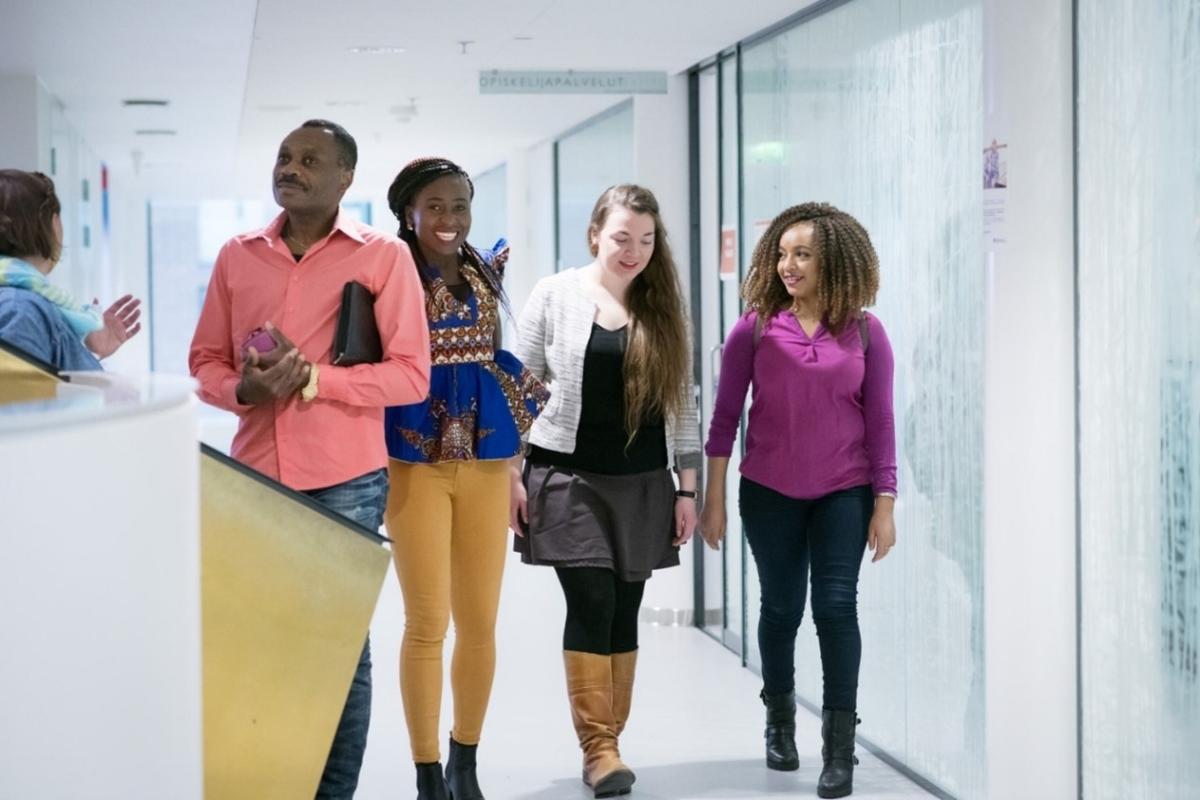The multiculturalism and non-discrimination of higher education institutions in Eastern Finland to be strengthened

The Finnish higher education field is rapidly diversifying. This diversification means, among other things, that a growing number of students from different backgrounds and cultures are starting their higher education studies every year. The Multicultural Study Paths project strengthens the multiculturalism of higher education institutions and promotes the educational paths of underrepresented student groups in higher education institutions, such as immigrants and Romani people. The project is being carried out in South and North Savo and North Karelia by five higher education institutions.
“In Finnish higher education, access to education for underrepresented groups, such as Romani people and people from an immigrant background, is often hampered by the inadequacy of guidance and counselling services, the lack of a more targeted education offering and the lack of outreach activity,” says Tuula Pehkonen-Elmi, Project Manager & Specialist at the Diaconia University of Applied Sciences (Diak).
According to Pehkonen-Elmi, students from groups that are underrepresented at higher education institutions often remain in their own groups and do not integrate into the higher education community, working life or society because of factors such as their language skills or cultural background. This phenomenon also affects international students coming to Finland for their studies as well as Finnish students, who also tend to limit themselves to their own groups and communities.
After graduation, students who only have loose ties to the area will not necessarily find employment locally, and will instead move elsewhere or return to their home country.
“If there were more integration into studies, working life and Finnish society during the studies, more people from the target groups who graduated from the university would stay to make their own contribution to the region and build their life here in Eastern Finland,” says Mia Sevonius-Male, Expert in Immigrant Work at Karelia University of Applied Sciences.
Five higher education institutions are looking for solutions and tools to address these phenomena. The Multicultural Study Paths project promotes accessibility, educational equality for groups underrepresented in education and non-discrimination. The main implementer of the project is Diaconia University of Applied Sciences. The co-implementers are the University of Eastern Finland, South-Eastern Finland University of Applied Sciences, Karelia University of Applied Sciences and Savonia University of Applied Sciences. The project is funded by the European Social Fund Plus through the South Savo Centre for Economic Development, Transport and the Environment.
Cooperation and communications in the students’ own language
Cooperation with the region’s upper secondary schools and vocational colleges in the planning of preparatory education will be intensified, making higher education more accessible. In order to reach potential applicants from an immigrant background, we need effective communication in the potential applicants’ own language that also provides information on the area’s services and opportunities for employment.
“In addition, higher education institutions and their education programmes must develop more support measures, such as peer-to-peer activities, and increase the cultural awareness of their staff and stakeholders,” says Pehkonen-Elmi.
Increasing the attractiveness of Eastern Finland with cultural and language awareness
The project also aims to increase the attraction and retention rate of higher education in Eastern Finland, as well as to support engagement and employment in the region.
“A diversifying working life requires more cultural and language awareness, which the project will promote. Higher education staff’s skills and methods for guiding diverse student groups are being developed, and staff is able to support the team formation of a diverse group of students even better,” says Sevonius-Male.
“We also want to offer Romani people and people from an immigrant background who are in employment the opportunity to develop their skills, raise their level of education and promote their career development. That is why we aim to improve the accessibility of continuous learning and services tailored for our target groups together with employers,” says Heli Kaarniemi, Coordinator at the University of Eastern Finland.
Information and experiences of best practices gained from the project will also be disseminated to other higher education institutions and stakeholders through, for example, the Rectors’ Conference of Finnish Universities of Applied Sciences Arene. The effectiveness of the project will be evaluated throughout the project. The evaluation will be carried out by Diak and the UEF Department of Social and Health Management.
“The results can be used in a wide range of ways to guide the career and study paths of international students and to help them develop ties to the area and find employment,” says Pehkonen-Elmi.
Photo: Diaconia University of Applied Sciences.
Basic information about the project |



